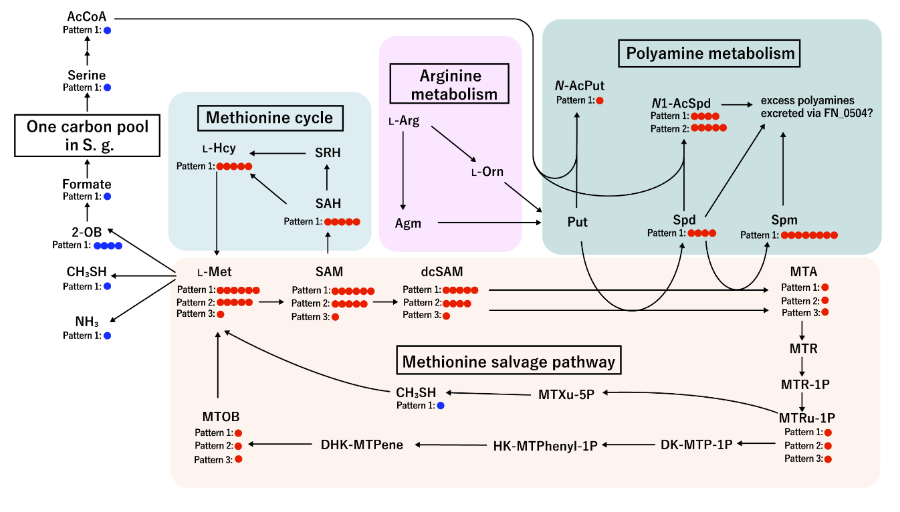Fertility from the sun, halitosis cause identified, vitamin B3 heart danger, and more
22 Feb 2024
Posted by Andrew Kantor
Covid spring boosters may be coming
When it comes to Covid boosters, you can almost say “the more the merrier” — boosters don’t last forever, and no one wants to deal with long Covid. Thus the CDC is now weighing whether to recommend a spring booster for people who are at risk of serious Covid complications.
An advisory panel to the CDC is expected to vote on whether to recommend a spring booster during a Feb. 28 meeting. […] The panel is expected to focus on the safety of high-risk Americans, including people 65 and older and anyone with a weakened immune system.
The recommendation is important because that’ll determine whether insurance covers the shot, helping keep “the people who are most accepting of public health recommendations” safer.
Fertile summers (courtesy of UV)
We all know that UV radiation, especially when it comes from the big yellow ball in the sky, isn’t good for you. (You can insert the list of reasons here.) But Israeli biochemists think they’ve found an interesting exception: women between 30 and 40 who want to get pregnant.
It seems that during the summer, “likely due to increased exposure to ultraviolet radiation from the sun,” women’s ovaries secrete more of the anti-Müllerian hormone (AMH), which is linked to ovarian function — AMH level is one of the first tests fertility clinics run.
The researchers are super-very cautious to point out that this is a preliminary study and that (in a surprise to some) “Humans are not the same as mice.”
And if you think results might be skewed because Israel is, you know, near the equator, keep in mind that it’s at the same latitude as Amelia Island, Fla.*
* Site of the Georgia Pharmacy Convention. What? We’re allowed a shameless plug.
Senators want influencer crackdown
Face it, “influencers” are really just infomercials with G-list celebrities. Still, they’ll push whatever they’re paid to, including drugs. And now some US senators think pharma companies are skirting advertising laws by having people on TikTok and Snapchat promote their products. They’re asking the FDA to crack down on the “alarming proliferation of dangerous and misleading content promoting prescription drugs.”
“FDA’s guidance needs to clarify that these platforms are subject to its jurisdiction and should reflect the way that advertisements on these platforms must comply with federal requirements—such as conspicuousness and duration of statements, and size/contrast of imagery, including accounting for character counts and other limitations.”
RSV vax passes halfway mark
The latest CDC data show that more than half of newborns have received protection from RSV — the second leading cause of infant death.
- 40.5% of children 8 months or younger got the shot (Sanofi’s Beyfortus).
- 16.2% of women 32 or more weeks pregnant got theirs (Pfizer’s Abrysvo).
Reversible sperm disarmer
The hunt for a reliable, reversible male contraceptive continues, and the latest breakthrough comes from the Salk Institute.
There’s a process for sperm to mature: Retinoic acid binds to receptors, those receptors bind to a protein called SMRT, then SMRT brings in an enzyme called HDAC.
The trick is to stop at least one link in that chain. You can’t block retinoic acid because that’s used elsewhere in the body. So the Salk folks targeted that HDAC instead. Why? Because there’s already an HDAC inhibitor out there (MS-275, waiting for FDA approval and for the Blue Fairy to give it a real name).
Result? “By blocking the activity of the SMRT-retinoic acid receptor-HDAC complex, the drug successfully stopped sperm production without producing obvious side effects.” Even better, just 60 days off the drug and the mice they tested it on got their fertility back.
Now that they’ve found the pathway (in mice, at least), the next step is to see if a human drug can be developed. Stay tuned.
Halitosis solved
Japanese scientists have figured out which bacteria cause bad breath. They knew the compound that stinks (methyl mercaptan, or CH3SH), but now they know that it’s produced when two bacteria interact: Fusobacterium nucleatum and Streptococcus gordonii.
Unlike other researchers, these folks decided to go big — they “developed a large-volume anaerobic co-culture system” — which we assume had some of their colleagues wishing they had chosen the “go home” option instead.
But hey, if you think the road to halitosis is a simple one, think again:

Niacin and heart disease?
Vitamin B3 (aka niacin) used to be recommended to help lower cholesterol, but how the turns have tabled. A new study out of the Cleveland Clinic found that too much contributes to heart disease.
Here comes the science: Excess niacin breaks down into a metabolite called 4PY. And — via a new pathway the Clevelandians just discovered — “4PY directly triggers vascular inflammation [that] damages blood vessels and can lead to atherosclerosis over time.”
The new findings also might help explain why niacin is no longer a go-to treatment for lowering cholesterol. Niacin was one of the first treatments prescribed to lower LDL or “bad” cholesterol. However, eventually niacin showed to be less effective than other cholesterol-lowering drugs and was associated with other negative effects and higher mortality rates
A positive byproduct of the finding is that this new metabolic pathwa might be something that can be tested for, which could lead to new treatments. But you know the drill: More research is needed.
Science!
Chinese researchers, using US data, conclude that “Watching at least five hours of TV a day associated with higher risk of nocturia, or needing to get up and urinate twice or more a night.”


